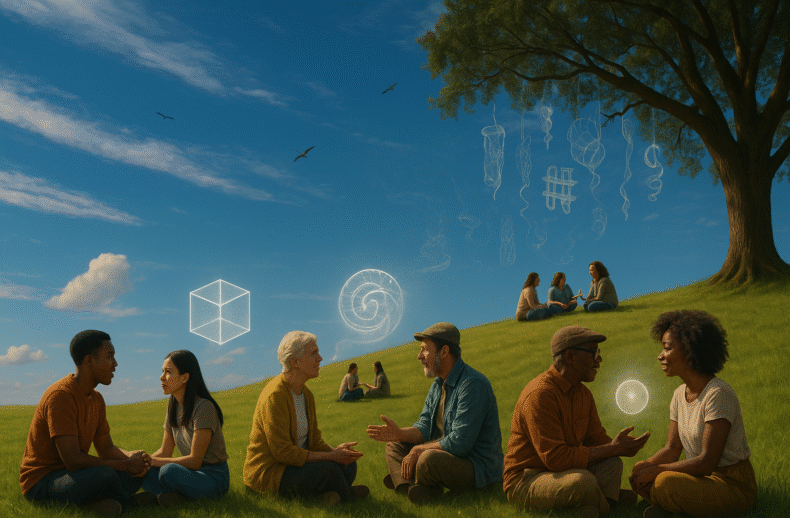A surreal, soft-white endless space.
Two identical babies—like mirrored copies—sit side by side. Both wear simple, soft white jumpers that blend slightly into the ambient space, emphasizing their purity and unformed identity.
The left baby smiles gently, arms lifted slightly. Around it, glowing green symbols hover: a warm hand, a smiling face, a heart, a gentle soundwave—all symbols of comfort and approval.
The right baby cries with a tense face and clenched fists. Around it, red symbols glow: a turned back, a frowning face, a gust of cold wind, a sharp soundwave—signs of discomfort or rejection.
Behind each baby’s head, translucent neural loops are forming—feedback circuits. The loops behind the left baby are smooth and self-reinforcing. Behind the right, the loops stutter and distort






